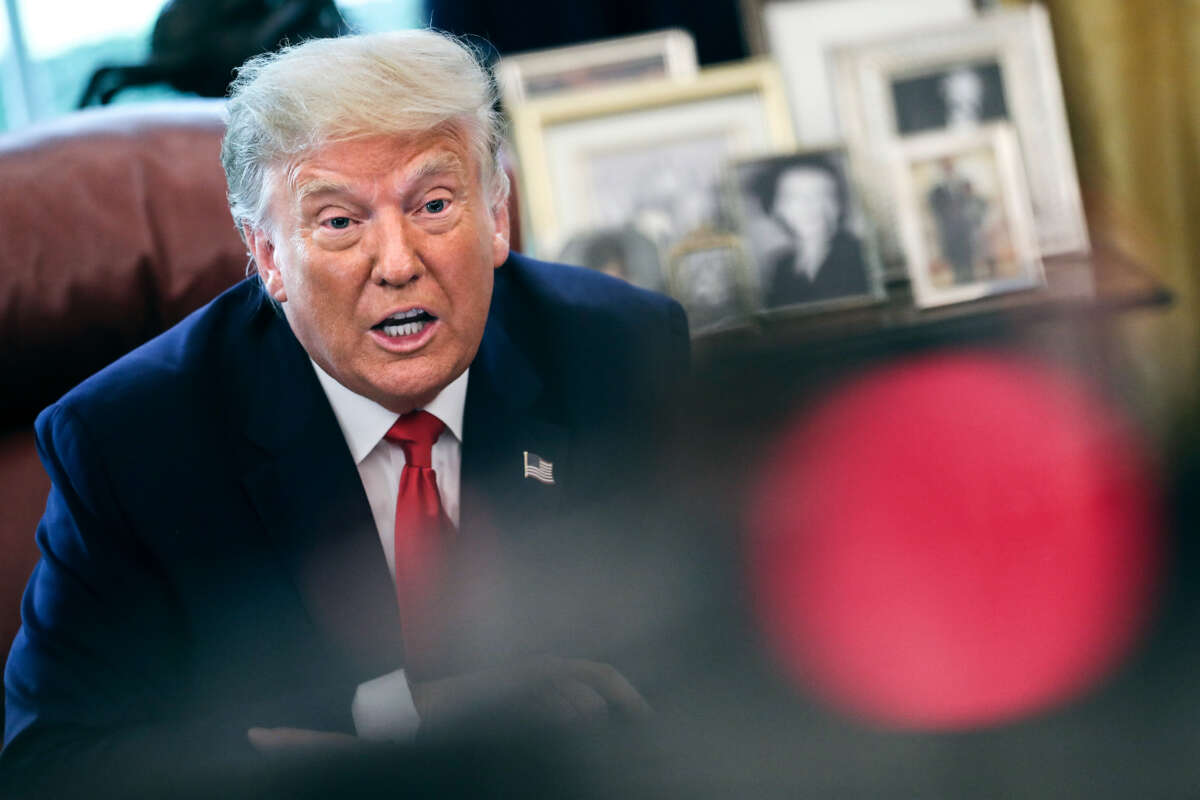Department of Justice (DOJ) special counsel Jack Smith obtained a warrant from a federal judge earlier this year to retrieve data and messages from Donald Trump’s now-dormant Twitter account as part of his investigation into the former president’s attempts to overturn the 2020 election.
The details of Smith’s request and the subsequent pushback by Twitter — the social media platform now known as “X” — were first reported on by Politico.
Smith’s request to examine the @realDonaldTrump account was made public on Wednesday. Many parts of the request are still redacted, including details on why the special counsel sought access to the account in the first place.
Trump was indicted earlier this month on four charges relating to the investigation. The indictment did not mention his Twitter communications and interactions, aside from tweets of his that were publicly known.
According to Politico’s reporting, “Obtaining data from Twitter might have revealed patterns about Trump’s use of the account, whether others had access to it and whether there were any draft statements that were unsent” relating to Trump’s efforts to undo the outcome of the election or to the January 6, 2021, attack on the U.S. Capitol building by a mob of his loyalists.
When Trump continued peddling violent rhetoric on the site in the days after the January 6 attack, his account was banned indefinitely. Although the account was restored nearly two years later, Trump has opted to send messages to his followers on his own social media site, Truth Social, instead.
The warrant is the first known example of investigators examining Trump’s communications as part of the inquiry into his actions. The warrant was signed just a few months after billionaire Elon Musk took control of the social media company.
Trump was not informed about the warrant until long after it was issued and carried out, with the district court noting that there were “reasonable grounds to believe” that informing him could “seriously jeopardize the ongoing investigation,” potentially prompting him to destroy evidence or to notify others that their communications might be investigated in the future.
Although the content of his private messages is not currently known, Trump issued public tweets urging his supporters to join him in Washington, D.C. for a “Stop the Steal” rally on January 6, promising a “wild” protest in a tweet on December 19, 2020. It’s possible that Smith wanted to search the account for other messages regarding the rally that Trump sent on or around that date.
Smith’s request for a warrant was granted by a judge. Although Twitter filed an appeal to block the warrant’s enforcement, an appeals court upheld the original ruling.
“The district court found probable cause to search the Twitter account for evidence of criminal offenses,” the ruling from the appeal said.
The appeals court noted that it was tantamount to the investigation that Trump was unaware of the warrant.
Because Twitter had filed the appeal days after the deadline to contest or abide by the warrant had expired, the appeals court also fined the social media company $350,000.
Trump reacted to the news on Wednesday by posting unwarranted claims on Truth Social that the warrant was proof that President Joe Biden, his primary opponent in the 2024 presidential race, was politicizing the DOJ in the case against him.
“Just found out that Crooked Joe Biden’s DOJ secretly attacked my Twitter account, making it a point not to let me know about this major ‘hit’ on my civil rights,” Trump claimed. “My Political Opponent is going CRAZY trying to infringe on my Campaign for President.”
Requests for the communications of individuals under investigation in high-profile cases like Trump’s are not uncommon, and are not considered a violation of civil rights unless one can prove that their Fourth Amendment rights were infringed upon. Notably, Trump has not provided any evidence that such violations took place.
MSNBC legal analyst Lisa Rubin disputed the likelihood that Trump “just found out” about the warrant, writing that people should be “skeptical” of that claim.
“Why? Because on June 20, the Special Counsel’s office applied to modify the prior nondisclosure order to ‘permit Twitter to notify the former President,'” Rubin tweeted, noting that “Twitter was allowed to tell Trump about the warrant’s ‘existence and contents’ in June.”
Media that fights fascism
Truthout is funded almost entirely by readers — that’s why we can speak truth to power and cut against the mainstream narrative. But independent journalists at Truthout face mounting political repression under Trump.
We rely on your support to survive McCarthyist censorship. Please make a tax-deductible one-time or monthly donation.
